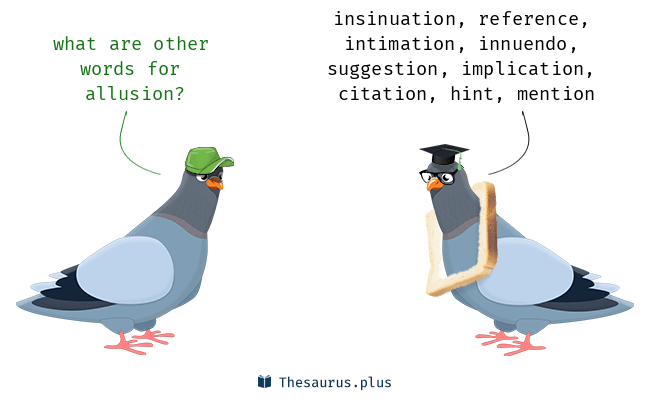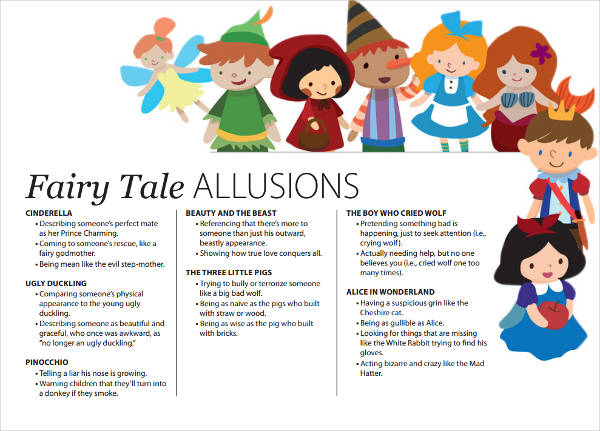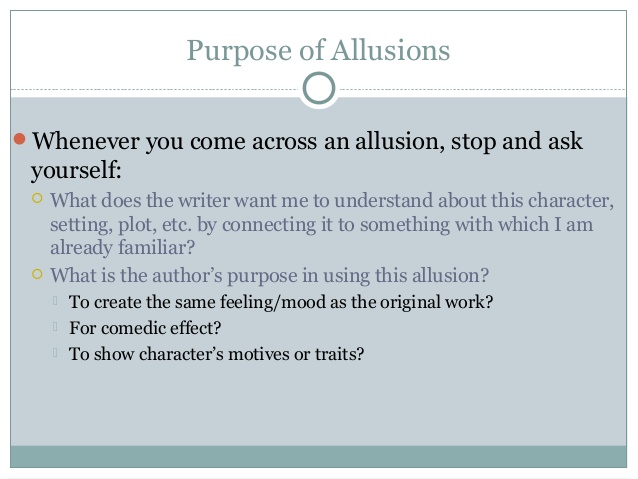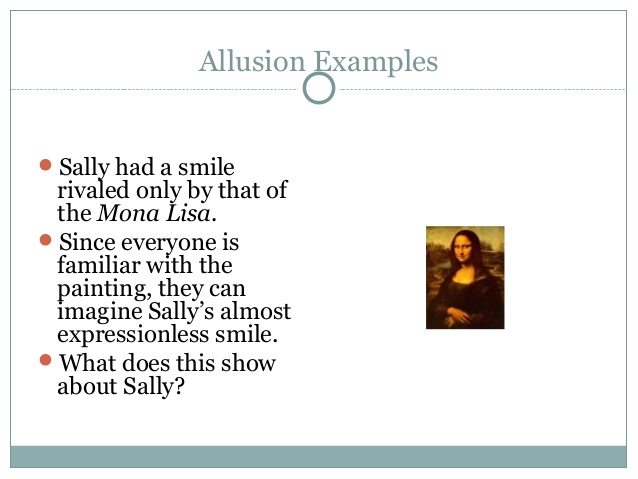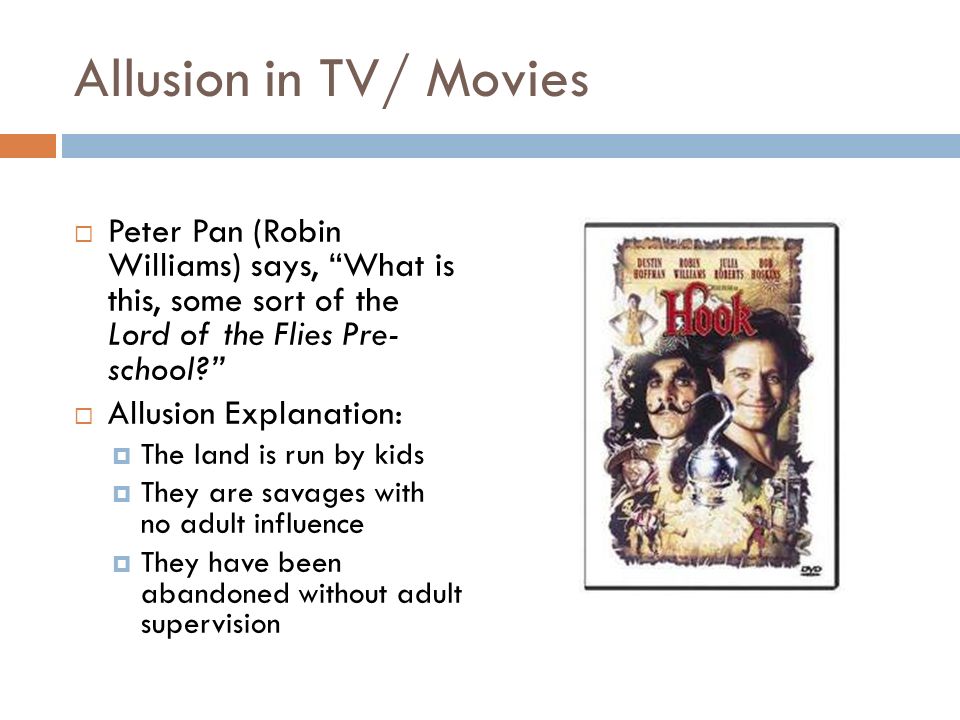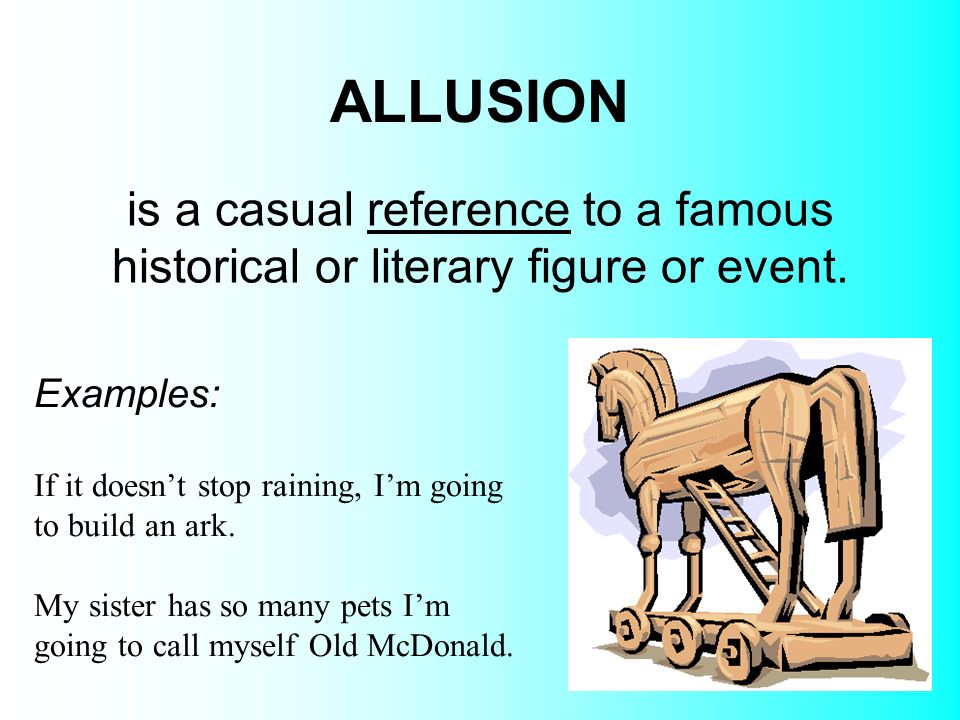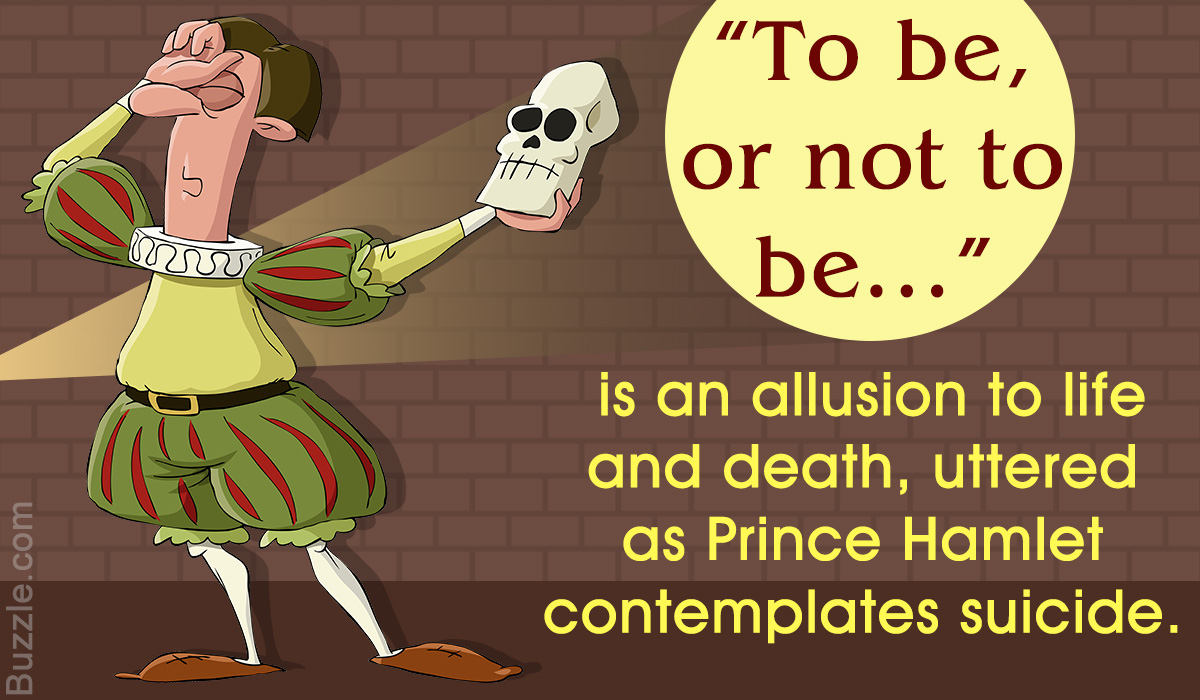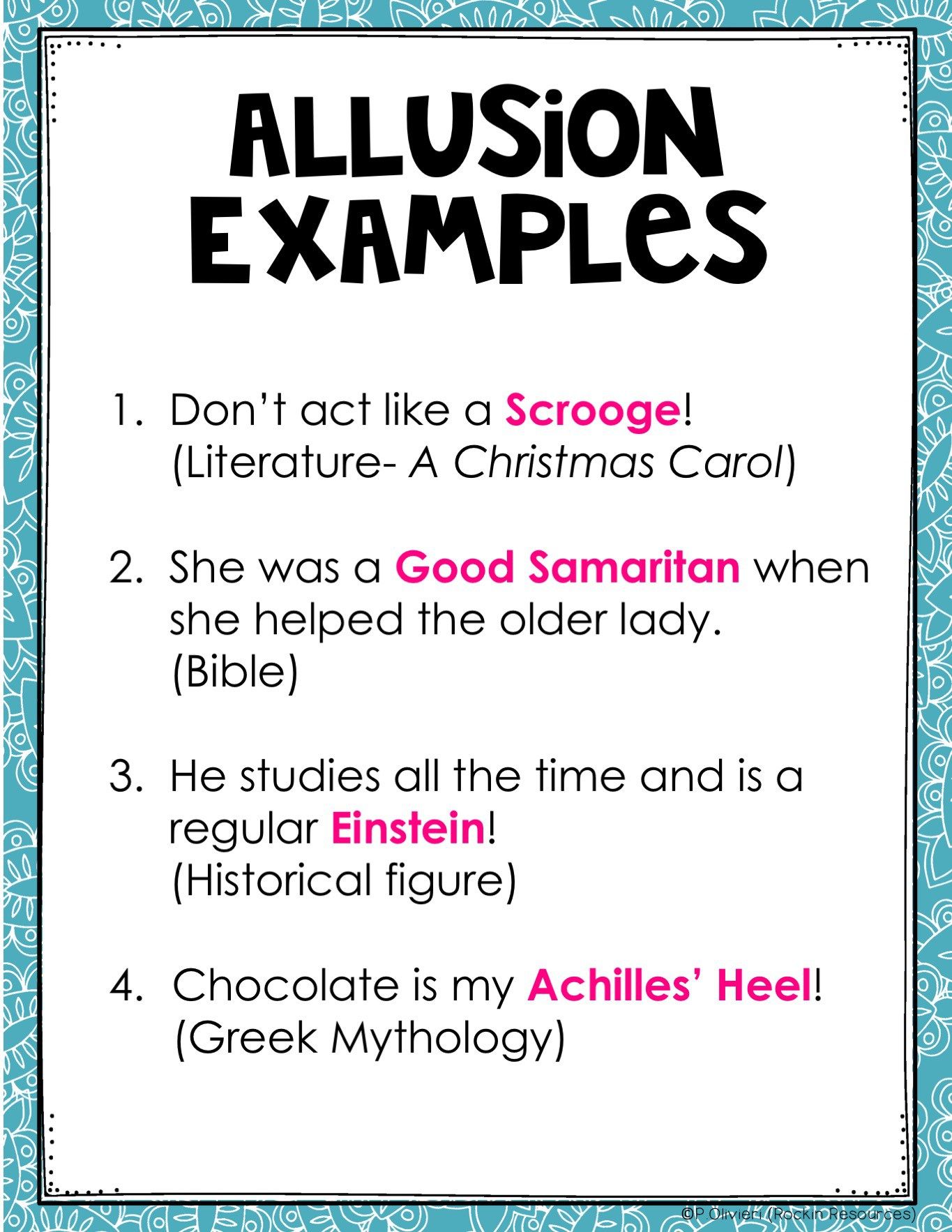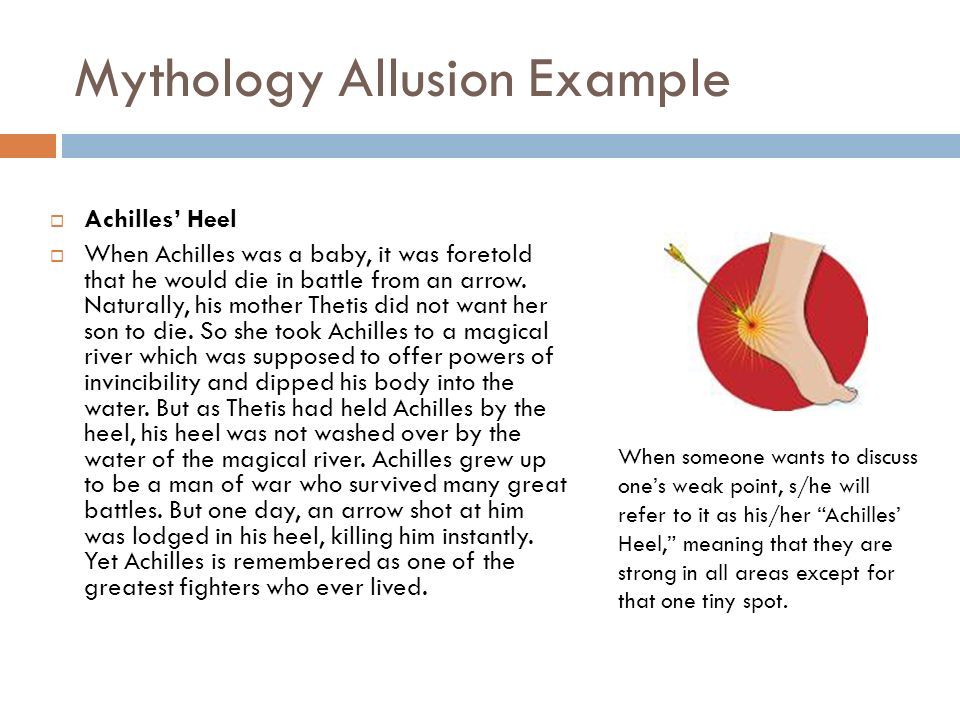7+ Allusion for Kids Examples to Download
Allusion is what you call the act of mentioning or referencing a person, event, statement, a piece of art, history, myths, religion, or any popular culture. The reference is often made indirectly in writing, without further discussion on the topic because it is assumed that the reader is already familiar with the topic being alluded to. You may also see alliteration examples in literature.
With that being said, an allusion is when a piece of simple writing, a novel or a poem for example, is hinting at a person, place, literature, music, or art, and automatically assumes that its intended audience understands and recognizes exactly what he is trying to refer. This means that the objects mentioned must be something that has become so popular that the common man can easily identify the source and understand what the writer is trying to say.
Fairy Tales Allusion Example for Kids
The Purpose of Allusions
Understanding Allusions
Allusions are actually really cool. It’s a lot like having secret inside jokes, but which aren’t just between you and your best friend, but between you and the whole cultured world. For example, if you ever read in a book that one of the character’s Kryptonite was chocolate, you’d automatically understand that the author was hinting at Superman. You may also see satire examples in literature.
Arguably one of the most famous superhero and nonfictional character, a classic comic book, and a blockbuster movie personality, we all understand what Kryptonite means to Superman. It’s his weakness, and everybody knows that. So when the author said that chocolate was the character’s Kryptonite, we understand that the individual enjoys chocolate so much that it has become his weakness. You may also like jargon examples in literature.
However, we will not understand that about him if we didn’t understand Superman and the relevance of Kryptonite to him first. By knowing Superman, we’ve also gotten to know the character. But the only way the allusion could work is if we, the readers, do our part by interpreting the author’s reference. You may also check out apostrophe examples.
Allusions work because they have the ability to communicate power and deeper meaning through a statement. Similar to the previous example. If the author simply said that the character likes chocolate, it would be nothing but another boring fact which probably doesn’t have any significance in the book’s main plot. You might be interested in meiosis examples.
But by comparing it to one of the most loved superhero’s weakness, the originally simple sentence gains a lot more importance. It made the general statement that much more unforgettable to the readers. Imagine comparing a person’s sweet food preference to a superhero’s weakness. Needless to say, the common statement became more powerful.
Allusions often reference to things and topics that everyone can understand, just like the example. But, sometimes, authors use them so that only a few of the readers catch them. It all goes down to how much you know of the world to be able to notice every allusion made in the books you read, or even in the everyday conversations you engage in. You may also see onomatopoeia examples in literature.
The most common allusions are, unsurprisingly, references to literary classics, such as Greek mythology, famous novels, and popular movies and songs.
People make a lot of allusion to books and movies, but we just don’t recognize it as an allusion. It almost seems like a natural response for us to hint at a specific cultural phenomenon. We just don’t realize that what we are doing has a name, and that the name is allusion. You may also like balanced sentences usage and examples.
Examples of Allusion
Allusion Examples in TV or Movies
Basic Examples of Allusion
Here are a few examples of dialogues that you may normally hear that are a reference to a popular movie, music, literature, or events:
- I met a man who was such a romantic. He was a true Romeo.
We all know Romeo. We’ve all fallen in love with him. (Which is why nobody blames Juliet for killing herself after he died.) And Leonardo Dicaprio playing the role in the 1996 movie adaptation made the character even more realistic and lovable. Romeo can now be considered a household name. His character is so famous that the name Romeo is now considered to be synonymous to “a passionate male lover.” You may also see periodic sentence examples.
So when the speaker says that he met a man who was “a true Romeo,” we can easily deduce that she means that the man she met was as passionate a lover as the main protagonist in William Shakespeare’s play entitled Romeo and Juliet. Instead of going on and on about how great the man she met was, she could just allude to Romeo, and everyone would easily understand what she’s trying to say. You may also like irony examples for kids.
- Things became hard in her life, but she just kept swimming.
This reference is fairly new in comparison to the other two examples we’ve already given, but that doesn’t make it any less popular. This simple statement doesn’t just allude to a character. It also hints at the famous line she keeps on saying throughout the movie.
“Just keep swimming” is a quote from the movie Finding Nemo. It is a line said by the character named Dory (who was voiced by Ellen Degeneres herself). It was a line that the forgetful, brave, young blue fish kept on saying to encourage herself and her friend to “just keep swimming” regardless of the adversities they may face. You may also check out antiphrasis examples.
The use of the famous quote in the previous statement is an easy way of giving out helpful (not to mention witty) advice to a friend who is going through something. Instead of throwing useless pieces of advice and awkward attempts at comforting, telling a friend to “just keep swimming” can remind them of the tough young fish everyone should look up to. And, if he is a true fan, the quote can even make him smile. All because you used an allusion. You might be interested in examples of assonance.
- I know things may seem hard, but all you need is love.
Books and movies aren’t the only sources that we can use for referencing. Even popular songs are great for allusions too. Take this one for example.
The line “all you need is love” hints at the classic Beatles song. If you have a friend who is a complete Beatles aficionado, you should definitely throw this line at him on his bad days. Not only will he understand the allusion, he’ll also appreciate the fact that you took it from one of his favorites. You may also see examples of oxymoron in sentences.
Allusion Example and Definition for Kids
Literary Allusion Example for Kids
Examples of Allusion in Literature
Literature invented allusion. So, of course, there will be a plethora of these in many famous works. Here are just a few examples.
“Sonnet. To a Young Lady Who Sent me a Laurel Crown” by John Keats
In the Sun’s eye, and ‘gainst my temples press / Apollo’s very leaves, woven to bless”
This line from one of Keats’s less famous sonnet hints at Greek mythology, specifically, to the story of Apollo, Cupid, and Daphne. In the story, Apollo is shot by Cupid’s arrow after he insulted the latter for always bringing such useless weapons. In Cupid’s defense, his bow and arrow aren’t war weapons, it was a weapon of love. They weren’t made to kill. So Apollo’s remark was just plain insulting. You may also see informative speech examples.
After shooting Apollo with an arrow, he instantly fell in love with a nymph named Daphne, who was also shot by Cupid with an arrow which made her feel nothing but contempt for Apollo. So you can see where the problem lies.
Daphne kept on rejecting Apollo, but he just wouldn’t take the maiden’s no for an answer. One day, he saw Daphne and tried to chase her, but Daphne ran as fast as she can. When she noticed that Apollo was about to catch her, she called to her father Peneus (who happens to be a river god, by the way) to help her escape the love-stricken Apollo. You may also like examples of sarcasm.
Probably because Peneus couldn’t think of any other way to help her daughter, she turned her into a laurel tree. Apollo was heartbroken, of course. He vowed to love Daphne forever. From then on, the laurel tree became one of Apollo’s symbols. It became sacred to the god. You may also check out simple allegory examples.
Now that you’re familiar with the backstory, rereading Keats’s sonnet will make us understand the weight of the laurel crown that was given to the speaker of the poem. The author alludes to the pride, victory, and the chase that occurred in the story of Apollo and Daphne. You might be interested in examples of situational irony.
Harry Potter and the Sorcerer’s Stone
Let us begin the discussion on the first novel in this cult phenomenon by saying that many of the names in the HP universe are adapted from Greek mythology and Arthurian Legends. Which is why it’s not surprising that J.K. Rowling would take the myth of the Philosopher’s Stone, one of the most popular object in legends, as an inspiration for her first novel. You may also see reflective essay examples.
The Philosopher’s Stone is believed to have the ability to turn base metal into gold or silver, while also having the power to grant its owner immortality. In the novel, the stone was sought by Lord Voldemort believing that it would not only give him back the strength he lost but it would also make him eternal. You may also like paradox definition and examples.
By alluding to the legend, the author is not only giving her story a strong plot, she is also making a reference to a subject matter that a lot of people are familiar with. She even made a hint at Mr. Nicholas Flamel.
In the book, Flamel was the maker and holder of the stone. He was 665 years old in the first book. But, in real life, Nicholas Flamel was just a French scribe who gained a reputation in alchemy. He died at 78 years old, so he obviously doesn’t have the stone. But the point remains. By alluding to a real-life legend in her book, the author has successfully made her story more realistic and believable. You may also check out cumulative sentence examples.
Allusion Examples for Kids
Allusion in Mythology for Kids
Allusion Examples for Kids
Here are a few examples of allusion for your kid’s perusal:
- She acts like a real Ebenezer Scrooge when it comes to her money. She won’t even buy anything if it’s not absolutely required for survival.
This statement references to the popular book entitled A Christmas Carol by Charles Dickens. In the novel, Scrooge is an extremely selfish and mean old man who refuses to spend his money if it isn’t completely necessary.
He even refuses to celebrate Christmas because he thinks that it is just an excuse made by the poor to irrationally spend a lot of money. However, the allusion can be misleading too since the story ended with Scrooge changing into a better man. You may also see anaphora examples.
But the point remains. Instead of using adjectives like frugal or prudent, the speaker alludes to a popular fictional character known for being a miser as a tool for helping his audience understand the gravity of the subject’s attitude toward money and spending. You may also like dramatic irony definition and examples.
- Class is boring. I want to go down a rabbit hole.
No, this doesn’t mean that the speaker wants to die beneath the earth. It’s an allusion to Lewis Carroll’s famous work entitled Alice in Wonderland.
In the story, Alice falls down a rabbit hole which took her to a different world called Wonderland, which was filled with gigantic, talking plants and animals, red queens who loved beheading people, and a huge dragon named the Jabberwocky. So if you hear your kid say that he wants to go down a rabbit hole, he just means that he wants to go somewhere different and interesting. You may also check out onomatopoeia definition and examples.
- Oh, you are such a Pinocchio!
Yes, names can be used as adjectives too. But only when you are making a reference to a popular piece of literature that everyone loves. In The Adventures of Pinocchio by Carlo Collodi, Pinocchio was a puppet who dreamed of becoming a real boy. The Blue Fairy took pity on him and gave him the ability to walk and talk like a real human person. You might be interested in examples of alliteration in poetry.
Unfortunately, Pinocchio loved to lie. And every time he did, his nose would grow longer. That way, people would easily know that he was being dishonest. By telling someone that they are being such a Pinocchio, you’re simply calling them off on being a liar. You may also see simile examples for kids.
Allusions are such a great way to make your everyday conversations and even your literary works sound more sophisticated.


